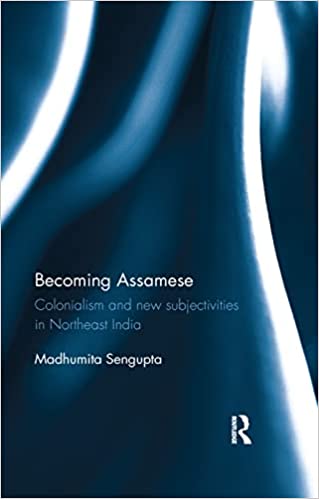Madhumita Sengupta’s Becoming Assamese: Colonialism and New Subjectivities in Northeast India is a welcome contribution to the study of colonialism and the making of 19th century Assam. The relations between the two processes have been the subject of research in the past, and continues to attract attention today. These researches have tried to look into aspects such as state making, political economy, production of culture, and the formation of identities. Sengupta’s book provides a background to these existing studies. But it also highlights possibilities of exploring the relations between colonialism and the making of ‘modern’ Assam through the vantage point of ‘subjectivities’. Though such an angle has attracted studies of postcolonial Assam, especially on identity debates, the book would be one of the few on the 19th century.
Becoming Assamese is divided into two parts, each part comprising three chapters each. The three chapters in the first part are: ‘The Political Economy of a Frontier’, ‘Languages of Identity’, and ‘The Burden of Progress.’ The second part comprises the chapters ‘New Solidarities: Print, Politics and Protest’, ‘Intimate Histories of Assamese’, and ‘Representing Traditions, Recasting History.’ While the first part generally concerns the policies and perspectives of the colonial state and missionaries, the second part takes into account some of the ideas and discursive writings of the 19th century Assamese intelligentsia, especially how to understand the nature and role of their sense of location vis-à-vis the conditions produced by the former.

